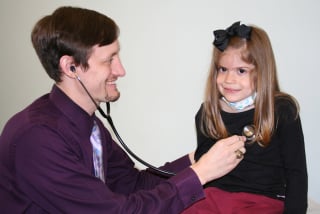8 weeks
81443
$3,000
This panel consists of 39 genes that have been associated with Kallmann syndrome (KS) and normosmic idiopathic hypogonadotropic hypogonadism (nIHH). These conditions are characterized by delayed or absent puberty due to decreased production and/or function of gonadotropin-releasing hormone. The majority of affected individuals are diagnosed at puberty due to the abnormal development of secondary sex characteristics. However, infant males with KS and nIHH often present with cryptorchidism and micropenis. Abnormalities in the sense of smell, including hyposmia or anosmia, is frequently observed in KS. Additional clinical features include renal agenesis, cleft palate, sensorineural hearing loss, dental agenesis, abnormal eye and hand movements, and abnormalities of the bones in the hands and feet. When left untreated, adult males tend to have decreased bone density, muscle mass and libido, erectile dysfunction, and infertility. Adult females have little or no breast development and primary amenorrhea. Confirmation of pathogenic variants can assist in early detection and hormone replacement treatment to induce puberty, secondary sex development, and fertility in patients with KS and nIHH.
Molecular testing is useful to confirm the diagnosis and to identify the disease-causing mutations within a family to allow for carrier testing.
Next Generation Sequencing
The preferred sample type is 3-5 ml of peripheral blood collected in an EDTA (purple top) tube. Extracted DNA and saliva are also accepted for this test. Saliva samples must be submitted in an approved saliva kit. Contact the lab to receive a saliva kit or to have one sent to your patient.
The specimen should be kept at room temperature and delivered via overnight shipping. If shipment is delayed by one or two days, the specimen should be refrigerated and shipped at room temperature. Do not freeze the specimen. Samples collected on Friday can be safely designated for Monday delivery.
Call our laboratory at 1-800-473-9411 or contact one of our Laboratory Genetic Counselors for assistance.
Robin Fletcher, MS, CGC
Falecia Thomas, MS, CGC
Alex Finley, MS, CGC
